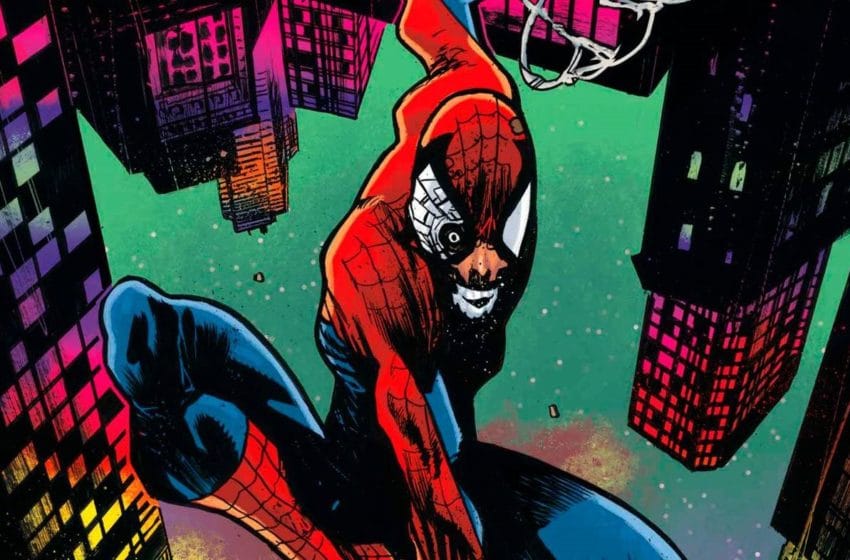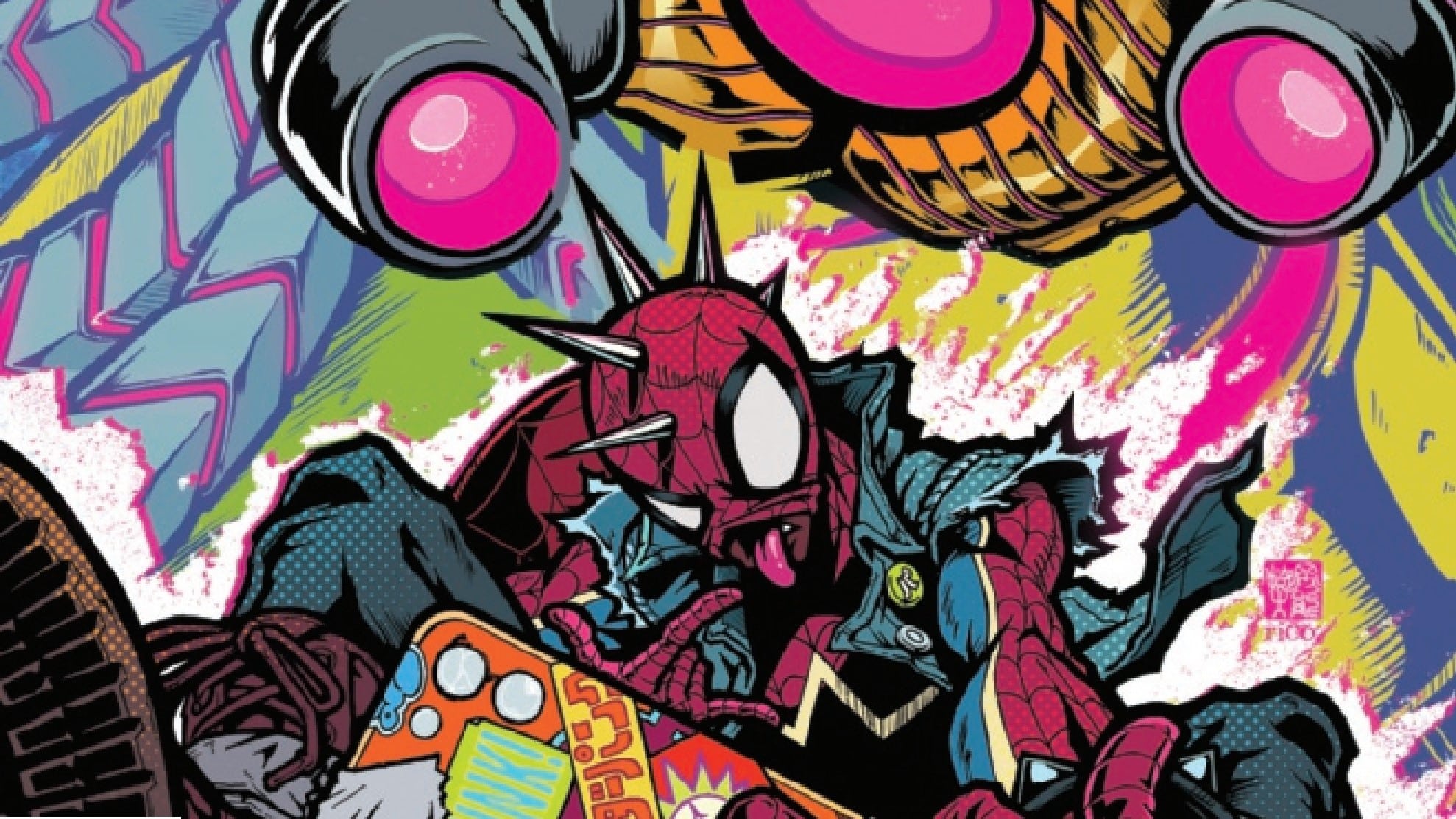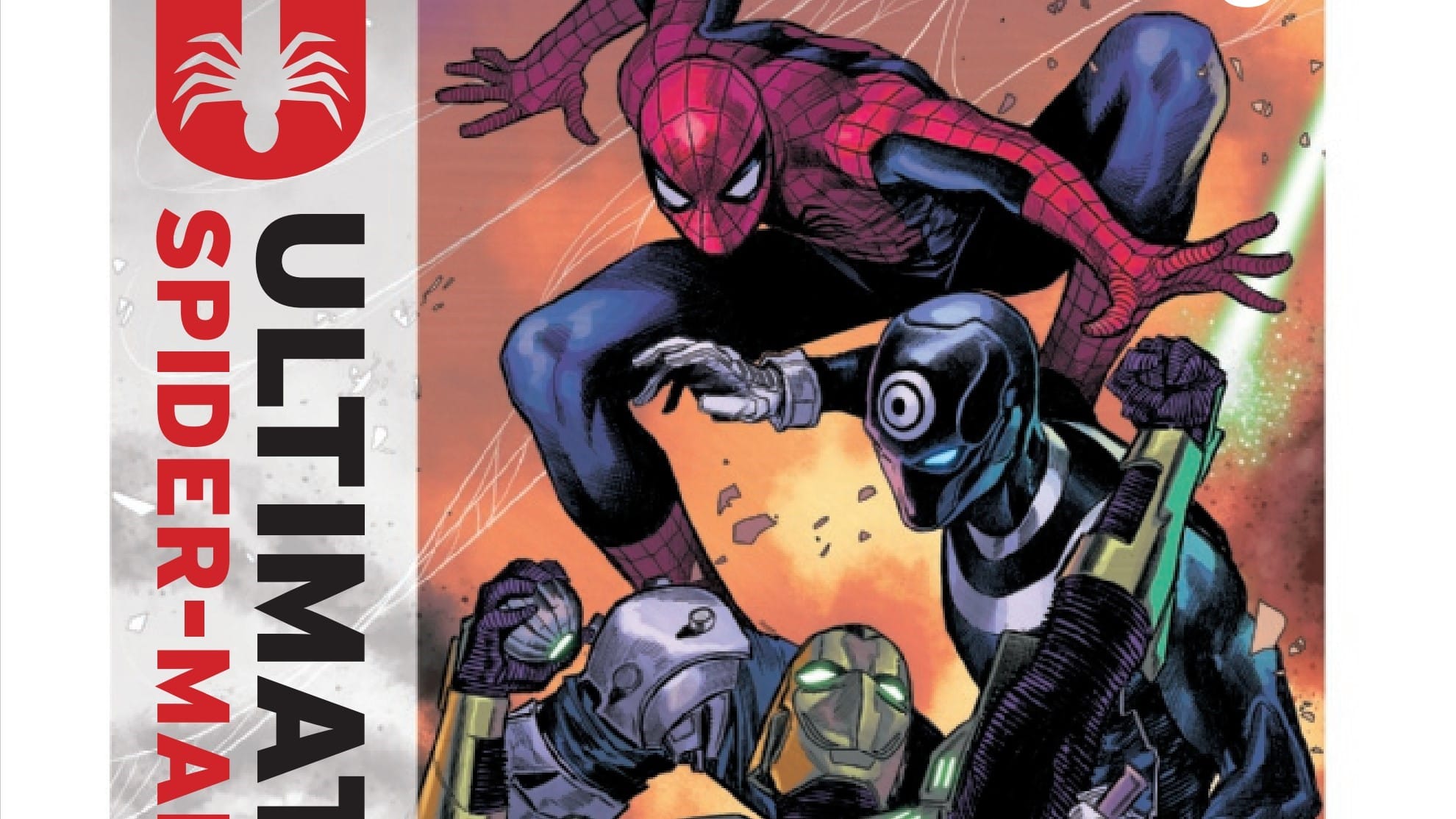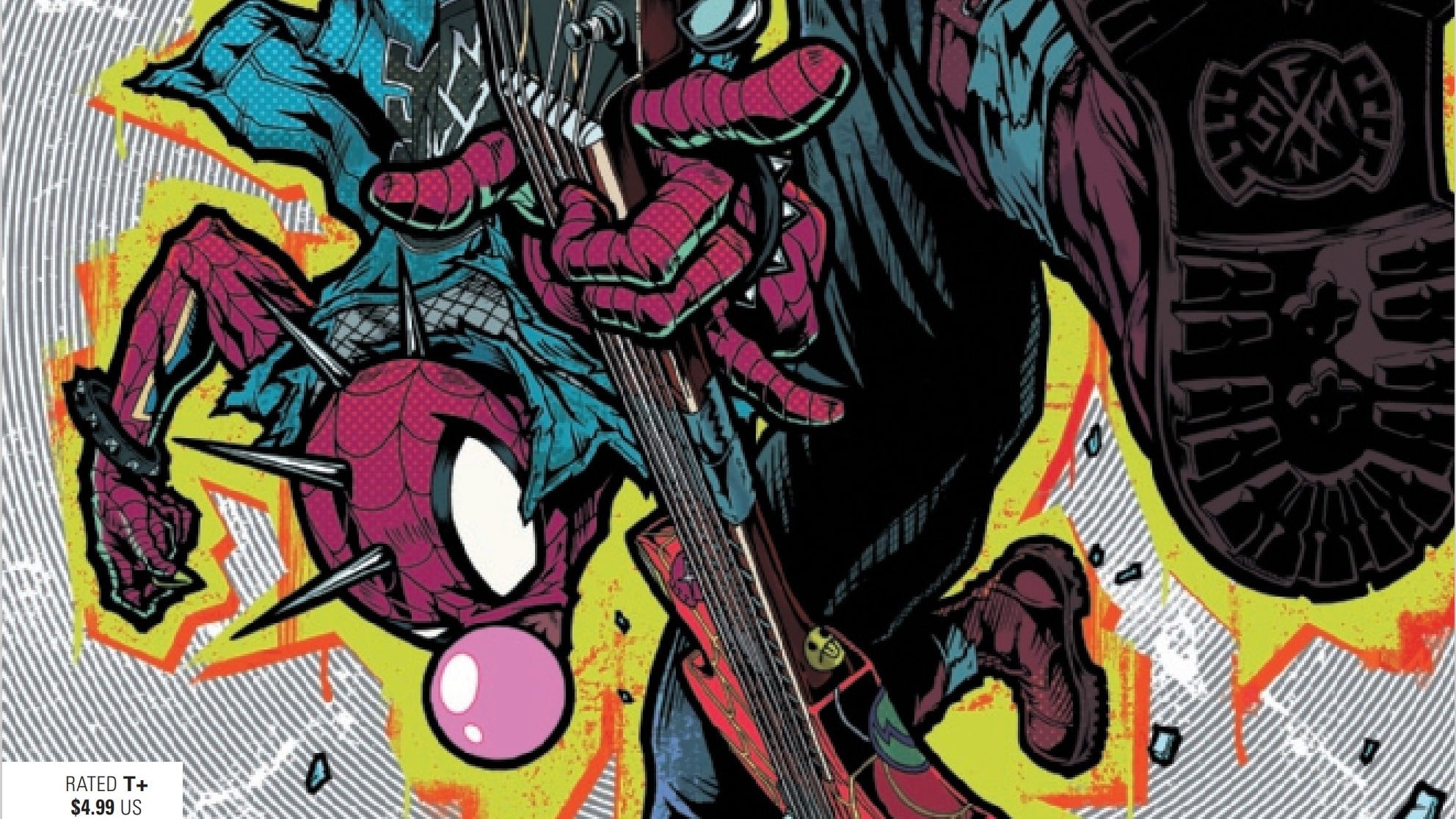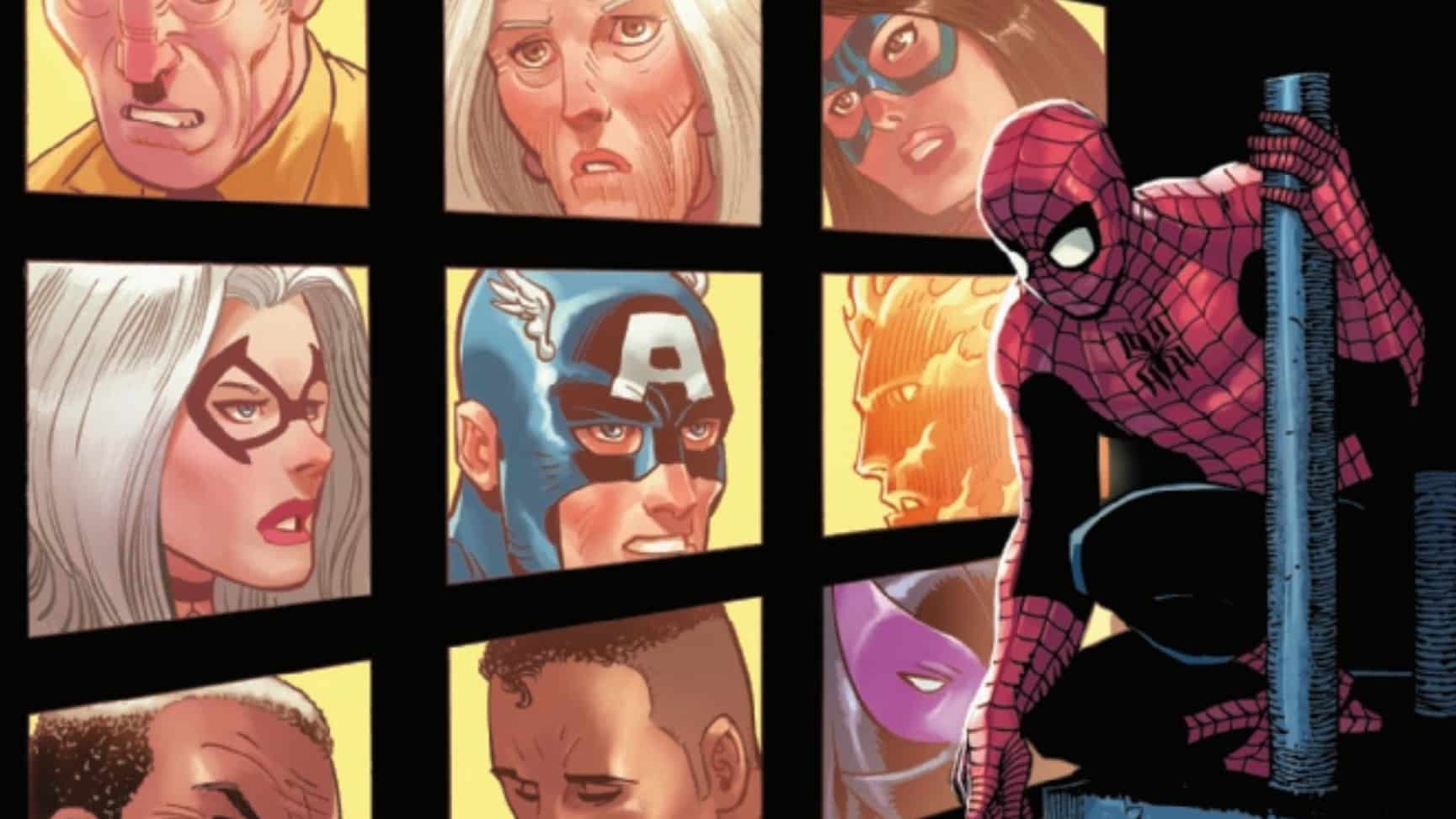Peter Parker attempts to face his greatest foe: the lies he tells himself in Darkhold: Spider-Man #1. Written by Alex Paknadel, art by Dio Neve, colors by Jim Charalampidis, and letters by Clayton Cowles.
Think about the biggest lie you’ve ever told.
You’re thinking about the bad things: the fake job experience you put on your resume that you’re still hoping HR never sees. The affair you’ve never had the guts to tell your spouse about. The time you were driving your car, and you heard a thump underneath your wheel, and you just kept going, saying it was engine trouble.
Those are damning, yes, but they’re not the one you should be thinking of. The biggest lie is the one you’re telling yourself right this moment: that the loss doesn’t hurt. That you’re doing okay. That the world around you still makes sense, and might get better. That everything is going just fine.
The biggest lie is the one you think is true.
Darkhold: Spider-Man #1 is a comic about Spider-Man’s lies, and it starts with an obvious one: Gwen Stacy (or, rather, a mystical simulacrum thereof) calling Peter on his cellphone to remind him of their anniversary date. Peter is in a hurry to get back to her, but he might not make it, because he’s busy saving the world from a dark, chaotic unraveling that no one in this story can quite comprehend. He’s trying to save the world by way of a metaphor: his webbing, literally and figuratively holding the world together by sheer, desperate force of tensile strength. But, as he tells us, “it doesn’t last”: sooner or later the pull of entropy is too much, and the world is too big, for one person to keep it all together on his own.
The first thing you think – and surely this is deliberate – is that this isn’t really a story about magic or chthonic mysticism at all. The sense of a world that has come apart too quickly and thoroughly to be able to process (“I don’t know how or why the unraveling happened. Nobody does.”) is the universal experience of a deadly, unceasing global pandemic. Or maybe of the steadily encroaching footfalls of fascism marching their way across the globe. It is, in any case, the common reality of 2021, when the greatest common linkage between us is a mass trauma we don’t even realize we’re deep in the middle of.
For Spider-Man himself, it’s an exercise in ignoring his own pain by trying, frantically, to fix the pain of others, whether it’s reattaching a pedestrian’s jawbone, or trying to calm down a pathetic, zombified Otto Octavius ranting his way across the Brooklyn Bridge. It’s his humanity at work, even in the most extreme of circumstances, and it makes a grim contrast with his counterpoint in this story, Reed Richards, who works in his laboratory to find a more stable solution to Manhattan’s discorporation.
If Spider-Man is an exposed, beating heart facing outward toward the world, then Reed Richards is his chillingly cerebral opposite: all mind and thought at the expense of inward or outward humanity. When we first see him, he has indeed made himself into something less than human, reducing his physical form into a writhing, gelatinous mass of flesh in order to free up greater room for brain function.
Alex Paknadel is a writer who has always had an affinity for gruesome body horror, and his genius for it lies in the fact that it is never grotesquery for grotesquery’s sake: the warped physicality always stands in for something fundamentally broken in an environment or in a soul (take, for instance, last year’s brilliant Redfork, in which the real monstrousness was the vanishing hope of the American coal belt).
Here, our first shot of Reed externalizes his worst and most persistent internal failings – the cold, calculating denial of human suffering that allowed him to value the flight of a rocket ship above the safety of the three people he loved most. The rounded, undulating globs of Diogenes Neves’ art are a contrast to the sharp-edged scientific pronouncements of Paknadel’s dialogue. But it’s all a show, in the end: Reed’s cool demeanor isn’t sociopathy, it’s denial. It’s as much a coping mechanism to put off the acknowledgement of pain as Peter’s relentless drive to relieve the pain of others. And it leads, ultimately, to the issue’s chilling, final twist of the knife – but we’ll come to that.
Neves, for his part, isn’t a terribly showy artist. He lacks, for instance, the lush, illustrative penstrokes of Juan Farreyra on Paknadel’s previous (and brilliant) horror one-off Immortal Hulk: Time of Monsters. Where he succeeds – and I think he does succeed – is in his general resemblance to something like a Marvel house style. It has the effect of dipping the entire story into an uncanny valley: everything looks almost right, but with a twisted deformity that throws our sense of recognition just enough out of sync to make us deeply unsettled.
This sounds like I’m damning with faint praise, but look at the way he breaks down the close of the sequence in which Spider-Man confronts the Venom symbiote in the sewers of Manhattan. Peter has just learned that the symbiote, too, harbors a painful truth that it would do anything not to face. Trying to do the only thing he knows how to do – to take the pain of others onto himself – he reaches out his hand. And in a sequence of three panels, opening up onto a nearly-page-encompassing splash, Neves shows us: a hand reaching out, a symbiote pulling away, and a bleak emptiness left in its wake. It has all the power it needs without ever drawing undue attention to itself. Simply enough, it works.
But the heart of the horror in this comic is in its story, and it comes to a head in its stomach-churning final page. Peter, having been made to suffer the worst fate that could be inflicted on him (not only a failure to save a life, but the necessity of acknowledging that failure in a way he can no longer ignore), inflicts the same pain back onto Reed Richards. The man whose lack of empathy allowed Peter to suffer will feel that suffering tenfold. His will be the weight and the pain of a responsibility that never ends. And all the while, Peter will stare with manic, terrifying glee at the reader, frozen in the endless time of a single page.
The issue is bookended by two stories that Peter tells us about his adoptive parents, Ben and May. In the first, Ben tries to teach Peter to embrace moments of silence in order to register the memories he contains. It’s the teaching of a saint – someone utterly at peace with who he is and what he has done – so of course Peter can’t do it. He’s more like his Aunt May: cleaning the same rooms, again and again, in a desperate attempt to stave off the recognition of grief.
It points to the most deeply frightening implication of Paknadel’s story: that Peter’s famed sense of responsibility isn’t just an effort to atone for a mistake, or a drive to live up to his Uncle Ben’s ideals, or even a desire to spare others the tragedy he failed to spare himself. It’s a fiction he tells himself to conceal the truth: that he’s just a scared young man trying to outrun the shadow of his pain before it overtakes him.
Because it will overtake him. Because the most devastating lies are the ones we need to survive. Because the end, when it comes, is always too soon. Because the worst pain we’ll ever face is the one we’ll never admit.
Zach Rabiroff edits articles at Comicsxf.com.

